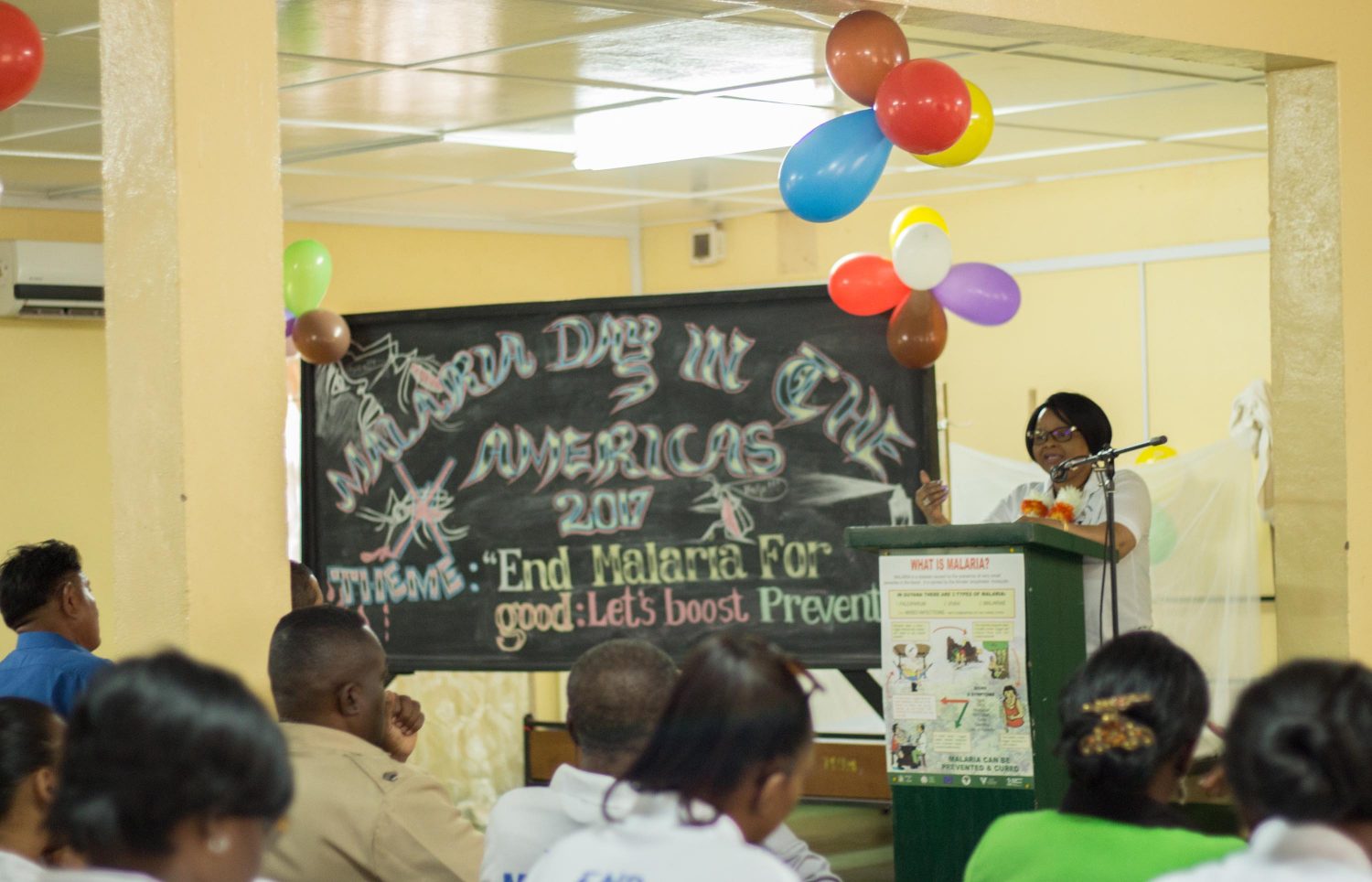Guyana has recorded a steady decrease in the incidences of malaria in the hinterland regions for the period 2014 to 2016, according to the Minister of Public Health Volda Lawrence.
According to a press release from the Ministry of Public Health (MoPH), Lawrence made the disclosure at the launch of ‘Malaria in the Americas,’ which was held in collaboration with the Pan American Health Organization/World Health Organization (PAHO/WHO) on Monday in Lethem, Region Nine, under the theme “End Malaria for Good; Let’s Boost Prevention.”
“The initiative to help eliminate Malaria and prevent its re-entry in areas where it was already eradicated parochially rest [with] the government and people of Guyana,” she said.
Lawrence told those present that it was their duty as Guyanese to provide enduring support to the efforts against vector borne diseases.
“We have a mandate to which we are all committed; that is to ensure the wellbeing of all communities,” the release quoted her as saying.
She emphasised that regular check-ups are mandatory since early detection is key in treating malaria and other vector borne diseases. She encouraged students in the Region to be educated and stay informed on the anti-malaria measures through the technologies that are readily available through the different mediums.
According to the release, Dr Jean Alexander, PAHO/WHO Malaria Specialist, explained that the plan of action for malaria deviation (2016 to 2020), which was recently approved by WHO, highlights strategies and focuses on advocacy and communication as the key issues in the Malaria response efforts in the regions. He stated that 19 of the 21 countries in the Americas have achieved significant reduction in malaria mobility and mortality and have expressed commitment towards Malaria elimination.
“Each region in the Americas will continue to pursue its commitment towards the Sustainable Development Goal of the global technology strategy for malaria,” the release quoted him as saying.
Alexander said that one of the most successful strategies implemented by the MoPH to combat the malaria epidemic was the distribution of the long lasting insecticide nets to the vulnerable populations.
Dr Quacy Grant, coordinator of the national malaria programme, noted that the goal of the vector control services unit is to have families and health communities free from malaria.
He explained that the ‘Mass Campaign for Malaria’ project is currently being piloted in White Water in Region One (Guyana/ Venezuela border). The aim of the campaign, he said, is to allow health workers to engage in house-to-house visits to sensitise residents on ways to prevent the spread of the malaria disease.






